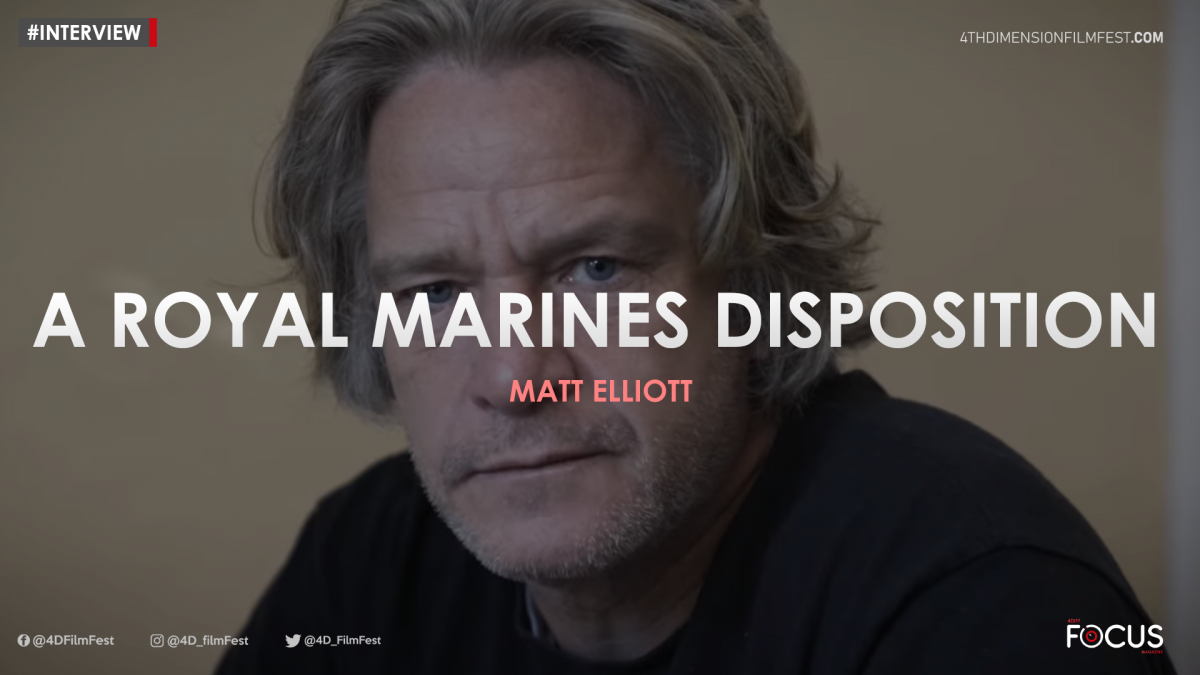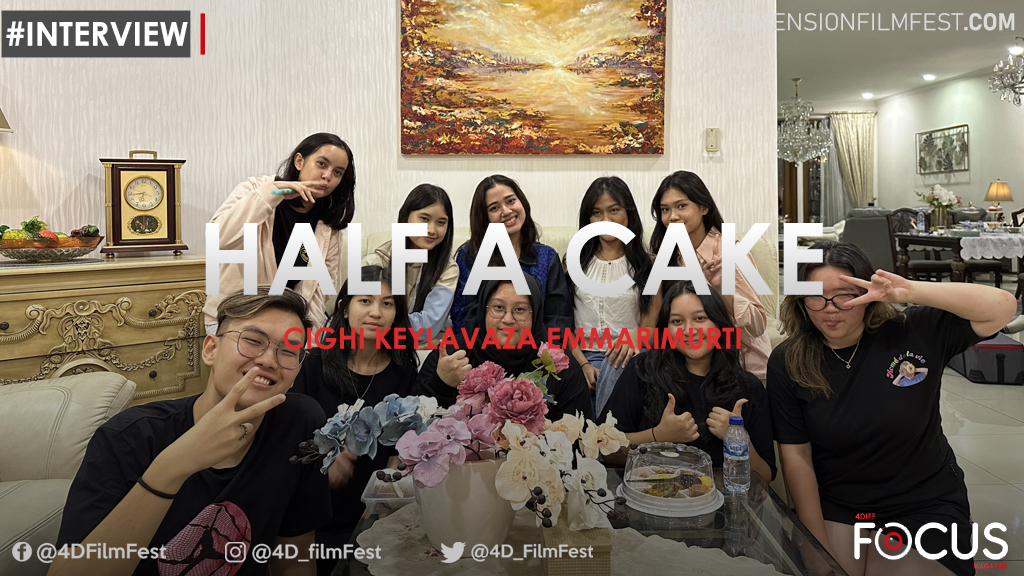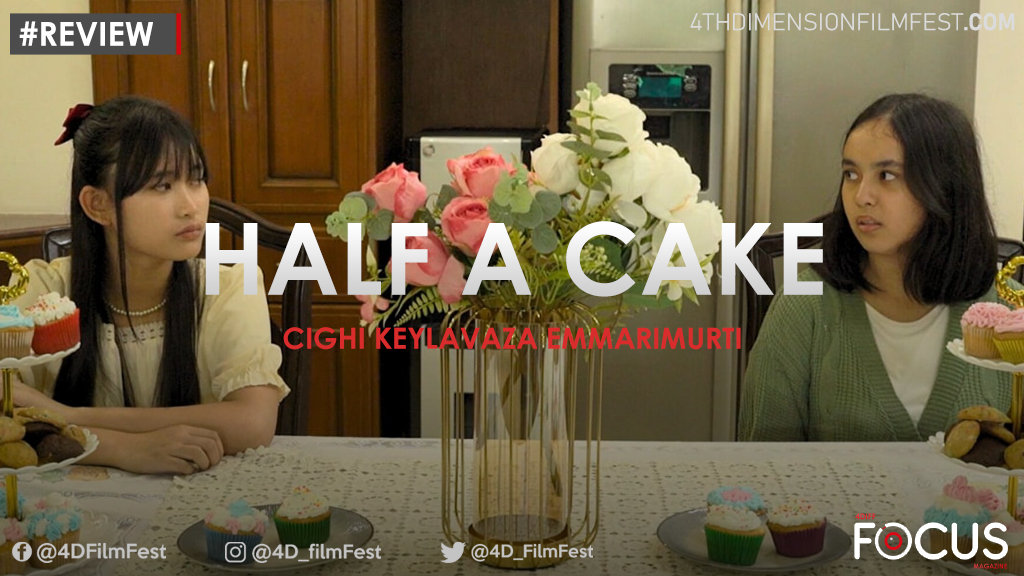Hello Matt, welcome to Focus!
How did you come up with A Royal Marines Disposition? What made you say yes to John Alden’s story?
Matt: John actually got in touch with myself and Daws, asking if we could make him a ‘Short Movie’. He had a published book called ‘The Falklands War from Defeat to victory’ along with a Screenplay ‘A Royal Marines Disposition’.
I asked John to write a new script for the movie, by cutting the dialogue down to seven minutes. To be narrated by an actor called Tip Cullen, himself a Former Royal Marines Commando.
I agreed to take on the job because the Falklands War was my inspiration to join the Royal Marines, these guy’s where my heroes. If you want to transfer knowledge across many generations, the way to do so before the internet was to tell ‘Dits’… stories.
The Falklands war has been a great impactful event in the course of history. How much research did you guys have to do?
Matt: Once we joined the Royal Marines the history is all there, first hand, the older guys told the first hand ‘Dits’ ( A story told by Marines) ‘Dits’ will always matter, now and in the future. The old Dits told by older marines, shaped new generations of Royal Marines.
Tip: The Falklands war (and the part played in the war by the Royal Marines) was pivotal to me joining the Royal Marines in 1986. I then would work alongside the Royal Marines, some of whom, where part of this story. I spent 30 years service as a regular Royal Marine before leaving to train as an actor. For the most part of my career I have been a Royal Marines Mountain Leader; being directly involved with all UK operations in a forward reconnaissance role during operations. I can empathise to a great deal on John Alden’s story; as Royal Marines we share a unique conditioning process which creates an understanding second to none.
History-based stories are often the most challenging ones. In the case of A Royal Marines Disposition, the emphasis was on memory. And as we know, memory is tricky. How did you all set up the script to focus on the narrative of memory?
Matt: We set up a ‘Zoom meeting’, John was offshore working while Tip, Daws and myself, sat in the studio. We started with introductions where everyone automatically got the feel of each other. Tip and John hit it off, both knowing the same people from ‘Recce Troop’ back in the day. This is when we knew it would all work; and told John to re-write the script for the movie, telling the ‘Dits’ like he would be in a bar, or the ‘grots’ (accommodation) of 45 Commando.
Matt, it would be great if you could share what inspired you to become a director?
Matt: I wanted to be a film director as we hold the creative vision throughout the whole process, from pre-production through to the final edit. At Orange Sky Productions, I’m the executive producer, who is ultimately in charge of production.
Tip Cullen himself had first-hand experience of combat. Did that factor make filmmaking easier?
Tip: I sincerely hope that I was able to capture and tell John’s story, with our mutual conditioning through the Corps and operations making the set a most effective creative environment. I was able to draw on real-life experiences of warfighting operations. The fears/apprehension, adrenalin and, at times, exhilaration experienced in a kinetic battle and aftermath… with the caveat of a sober realization to the tragedy of war and what humans can prosecute on other living beings. These experiences will be relived for the rest of this person’s days, exposure to trauma is very hard to forget, if at all….
As a director, what kind of stories do you wish to tell the world?
Matt: ‘Dits’/ Stories transcend generations. They create connections with others. It is through these ‘Dits’ that we experience rich emotions and feelings of joy, sorrow, hardships, and failures. We learn about behaviours and consequences. Stories show us what we have in common with others, and we learn to engage with others despite our differences as we come to understand who they are and where we stand in this world. Stories give us the opportunity to experience narratives in our imagination as if they were real and feel raw emotion even though the reality of our experience is only in listening to the story. Our brain experiences imagined narratives as if they were real. There is little difference between how our brain processes information when we read or hear stories and when we experience reality. To our brain, it’s all the same. Stories help us create our identities as we tell stories of how we think, what we feel, and how we justify our decisions. Through such rich experiences, we come to understand our unique perspective and our place in the world.
Which feature of a story appeals to you most?
Matt: Stories like John Alden’s, engage our attention and trigger our imagination. When you hear a story, you step out of your reality and place yourself in someone else’s shoes, and you get to experience their perspective and engage in their emotions, actions, and decisions. When you listen to a story of someone else’s life, it’s as if you’re living their story for those brief moments, and that experience allows you to learn from other people’s experiences.
Tip: There is so much of John’s story that remains a historical document as it unfolded in the Global media. All the elements of the story appeal to me as a similar narrative could be drawn from my own personal experiences (War is War… unfortunately… as we see happening today in Ukraine and around the world). I was also lucky enough (and quite spookily) to perform in the play Minefield/Campo Minado in Buenos Aires during the 40th anniversary of the conflict… performing in a role as Lou Armour; John’s section commander mentioned in the film.
Historical narratives, tragedies or comedies? Which genre do you prefer most to work on and why?
Tip: Being an Irish person, a former Royal Marines Commando and now an actor you can tell I have a lifetime passion of storytelling… and now I am striving as an actor to be successful in my career. Although being type cast can be expected in the modern industry, what I love about being a storyteller/actor is the wide spectrum of genres… I want to get my teeth into them all!!! Send them on!!!
Matt, where do you see yourself in the next ten years? What keeps you moving?
Matt: As technology presents so many dynamic opportunities to create new content, we crave stories so we can make sense of the world. The more information we create, the more valuable stories become, because without them we lose perspective on what matters. And in a world with more information than ever, it’s harder and harder to discern which information truly matters.
Thank you for sharing your feelings with us, Matt! All the best for your future!




